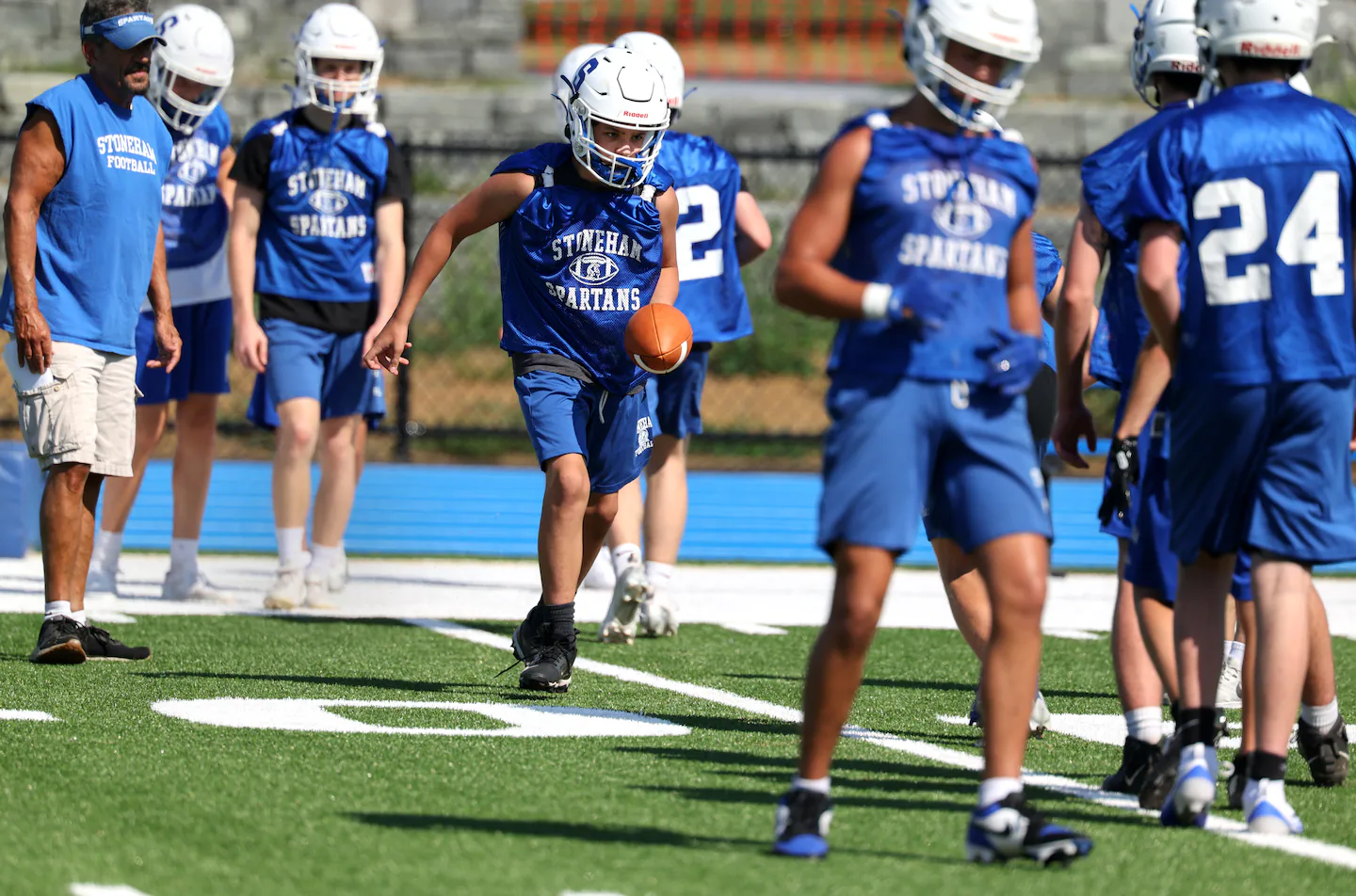Copyright The Boston Globe

While the end date passed unanimously, 23-0, the start date was approved, 19-4, after some debate. The start date had been rejected, 12-1, by the Tournament Management Committee. “We want to start at a time that makes sense for everyone,” said Wellesley athletic director John Brown, who was part of the sub-committee that formed the proposal. “This year started on Aug. 15. That’s not fall. That’s summer. Why are we starting a fall interscholastic sport for educational athletics on Aug. 15? That being said, we talked about football. The football schedule this year, and last year, had a bye week. Yet we still started on Aug. 15. This calendar doesn’t make sense.” The first date available for football games will be Sept. 10, the Thursday following Labor Day. But there will only be one open Saturday (Sept. 5) to hold scrimmages. Previously, there were two. Back when the calendarization project began, MIAA executive director Bob Baldwin compared it to assembling a hamburger. “We got the buns of that cheeseburger, Bob,” Brown said. With the bookends set, the board rejected a proposal to delay the start of the winter season by a day from the Monday to the Tuesday after Thanksgiving. “We’re a pretty firm no on this,” said Malden principal and former basketball coach Chris Mastrangelo, who sits on the basketball committee. “That first contest sneaks up on you really quickly and if you have two or three days of tryouts, it’s even quicker. So losing that one day, we think would be a negative to basketball.” “The ice hockey committee is opposed to this,” echoed Arlington Catholic AD and former hockey coach Dan Shine. “It causes a lot of conflict with rinks and ice time, and a lot of schools are limited on ice time. You lose an entire day of ice time. As basketball noted, it doesn’t do anything for you in the positive. The kids will still be finding places to meet and we’ll have that issue on our hands to try to control that.” A proposal to only release tournament brackets on weekdays, with the exception of football, was also defeated, 14-9-1. “The way seasons lay out, I think tournament directors and people who are putting those brackets together need the flexibility to suit their needs,” said Quaboag AD Dave Bouchard. ▪ By a unanimous 23-0 vote, the board approved a new process for adding sports, which will route through the board itself instead of the two-year rule change process that wound through individual sport committees. The new process creates two categories: “emerging sports” and “championship sports.” To be approved, an emerging sport requires participation by at least 15 percent of MIAA schools (57 currently), or provide support letters from enough school principals to reach that number. A new sport would also need the backing of its national governing body, and the board will consider nine factors, from health and safety to growth potential to budgetary implications in its deliberations. Once approved as “emerging,” a sport must reach 20 percent participation (76 schools currently) to qualify for “championship” status and hold an MIAA tournament. An emerging sport has three years to become a championship sport. If a championship sport falls below 20 percent participation, it will be reviewed every three years, during which it must re-establish that 20 percent mark or demonstrate steady growth, or the board can vote to remove it. “It’s a smart move [by the board], it will allow sports that probably would have never had a chance to get through [the old process] — they now have a chance,” said Ayer-Shirley athletic director Steve Kendall, who, in the past, has made a proposal for 8-player football because of declining roster numbers at small schools. “Are we approaching 50 possible schools that might have interest? I’d have to do a little bit of research,” he said, while noting that six of Ayer-Shirley’s eight football opponents this fall have numbers issues. “But if we do not act quickly,” with an eye on the association’s annual meeting in April, “are there football programs that will not continue to exist?” ▪ A request from the Patriot and Mayflower leagues to move the start date for indoor track competitions up from Dec. 11 to Dec. 10 failed, 16-8. The request was made due to facility availability. There were concerns allowing one sport to alter its start date would be precedent-setting, although it was acknowledged it had been done in the past. Craig Larson of the Globe staff contributed.



